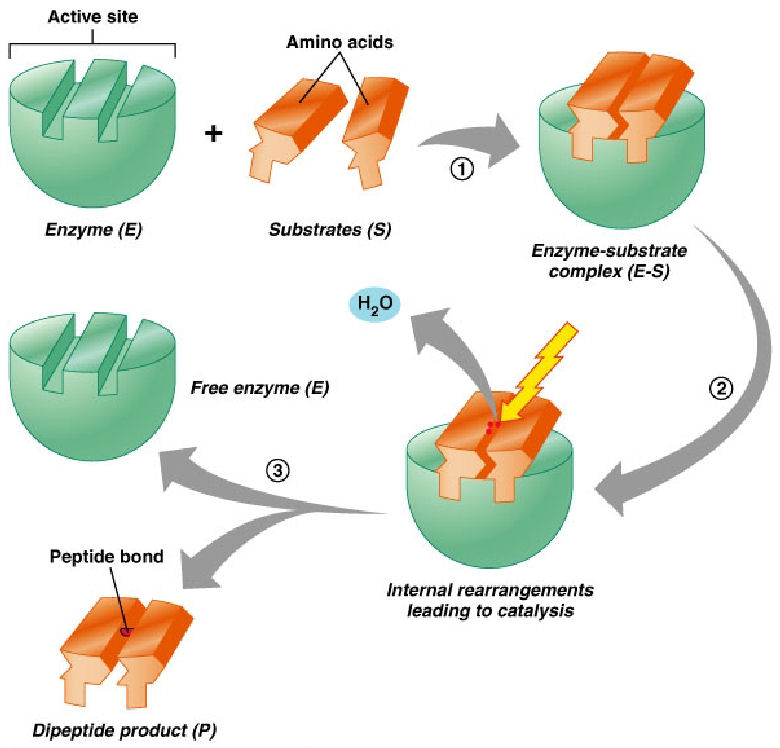208.WHAT IS AN ENZYME?
The body of every living animal and plant is a chemical factory. In fact, if all kinds of chemical changes weren’t constantly taking place, life would be impossible. You are able to use food, breathe, grow, and move because of the chemical changes which take place m the cells, tissues, and organs of your body.
Here is an example of this chemical life process. You eat a piece of bread, or a cereal, or a potato. The starch in this food is changed into sugars which go into the blood. There they are burned by the oxygen which is in the air you breathe, and your body obtains energy.
Chemists discovered that a process like this—in fact, every chemical process like this that goes on in a living body—can take place because it is helped by a very small amount of a protein which is produced by living cells. This is called an enzyme. An enzyme is said to be specific, which means it is fit to do only one special job. Each enzyme initiates only one chemical process.
Chemical changes, as we have said, take place in all living things. So when grains of wheat, barley, or some other cereal begin to grow, they make enzymes which change their starches into sugars. This change is called malting, and in each case, the enzyme which does it is called diastase.
Even though we know what enzymes do, we still don’t know too much about them. They are organic compounds; that is, they are substances which always contain the elements carbon and hydrogen, and often oxygen and nitrogen, too.
There are a very great many different enzymes, but only a few have been isolated from the juices of plants or animals where they are found.
A curious thing about enzymes is that while only living cells can produce enzymes, they can produce chemical changes even without living tissue.



Leave a Reply